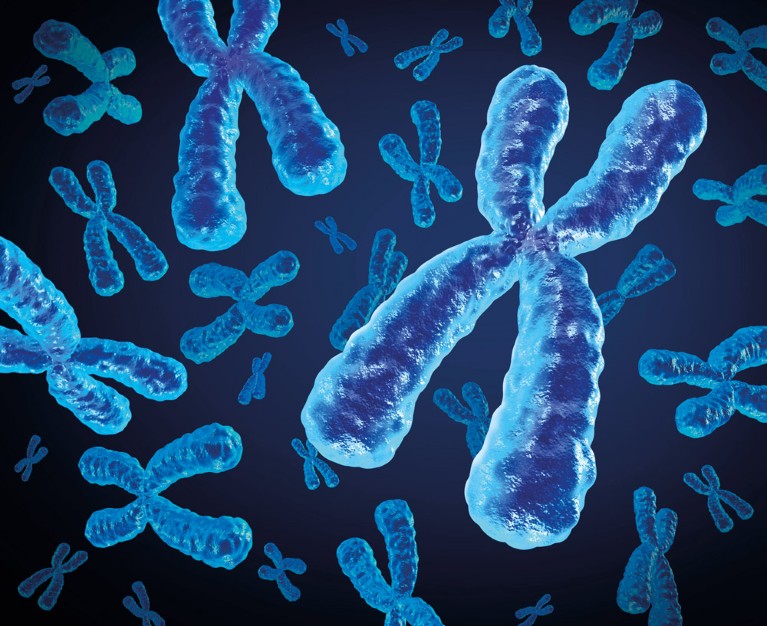
Missing alleles in the tumour suppressor gene PTEN may indicate a propensity towards colorectal cancer in North Indian patients.Brain light / Alamy Stock Photo
An individual’s genetic make-up, including their ethnicity, determines how likely they are to develop certain diseases. A team of researchers from Saudi Arabia and India has pinpointed a mutation in a gene that may prove useful as a biomarker, indicating the presence and severity of bowel cancer. The healthy gene, called tumour suppressor gene, is responsible for protecting cells from one of the steps on the path to cancer.
Genes can take a variety of different forms known as alleles. Humans have a copy of each gene (two alleles) — one from each parent — at each locus on the chromosome. The gene pairs can be identical, with two copies of the same allele, or they can be different. Such genetic diversity produces differences in inherited characteristics and can give rise to genetic propensity toward disease. Sometimes, one of the two alleles at a particular locus can be missing entirely, a phenomenon called ‘loss of heterozygosity’ (LOH).
“Since LOH is a gross chromosomal mutation, it leads to a higher degree of genetic instability. For example, LOH at genes on chromosome 10 have been implicated in multiple cancers,” explains biochemist Aga Syed Sameer of King Saud bin Abdulaziz University for Health Sciences in Saudi Arabia. “We had previously analyzed the role of tumour suppressor genes in colorectal cancer, including one called PTEN found on chromosome 10. We decided to examine whether LOH at PTEN impacted on cancer progression.”
Sameer’s team focused on bowel cancer in North Indian patients. They collected 223 tissue samples from patients visiting a New Delhi hospital between 2008 and 2012. They extracted DNA from each sample and searched for LOH at PTEN. They compared the results with a control group of healthy tissue samples.
They found LOH at PTEN in 102 out of 223 cases. More significantly, they found PTEN LOH was significantly associated with cancer-related clinical factors such as the level of lymph node invasion and tumour growth. LOH is associated with a decrease in PTEN expression and consequently increases the chances of tumours developing.
“We conducted further analysis on early and advanced stage colorectal cancer tissues and found that patients with advanced metastases were more likely to display PTEN LOH. The mutation could therefore be an invaluable biomarker for disease diagnosis and prognosis,” says Sameer.
The team hopes that this research will help improve the diagnosis of bowel cancer, and Sameer himself may investigate similar cancer-related mutations within the Saudi Arabian population in the future.


